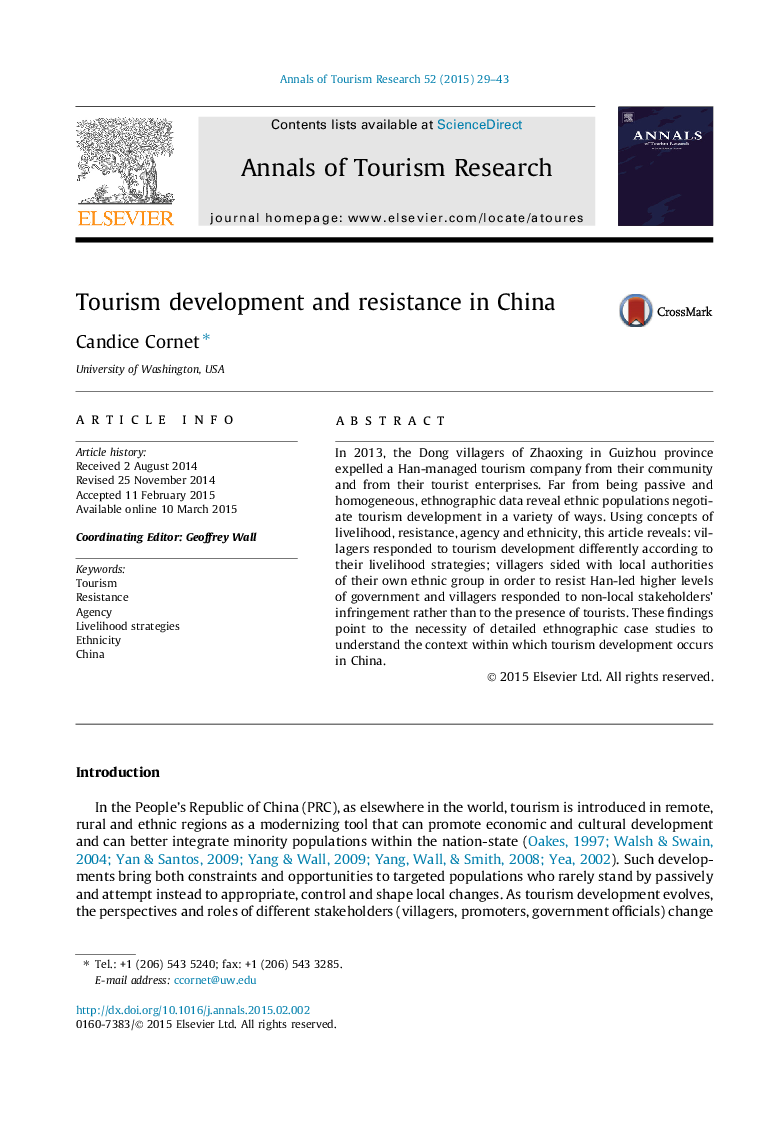| Article ID | Journal | Published Year | Pages | File Type |
|---|---|---|---|---|
| 1007009 | Annals of Tourism Research | 2015 | 15 Pages |
•Analysis of local responses to tourist development in a Dong village of Guizhou.•Ethnic villagers are not passive nor homogeneous in facing tourism development.•Local livelihood strategies determine the shape, presence, absence of resistance.•Villagers’ resistance is directed toward outside infringement, not toward tourists.•Minorities side with local ethnic authorities to resist Han government officials.
In 2013, the Dong villagers of Zhaoxing in Guizhou province expelled a Han-managed tourism company from their community and from their tourist enterprises. Far from being passive and homogeneous, ethnographic data reveal ethnic populations negotiate tourism development in a variety of ways. Using concepts of livelihood, resistance, agency and ethnicity, this article reveals: villagers responded to tourism development differently according to their livelihood strategies; villagers sided with local authorities of their own ethnic group in order to resist Han-led higher levels of government and villagers responded to non-local stakeholders’ infringement rather than to the presence of tourists. These findings point to the necessity of detailed ethnographic case studies to understand the context within which tourism development occurs in China.
